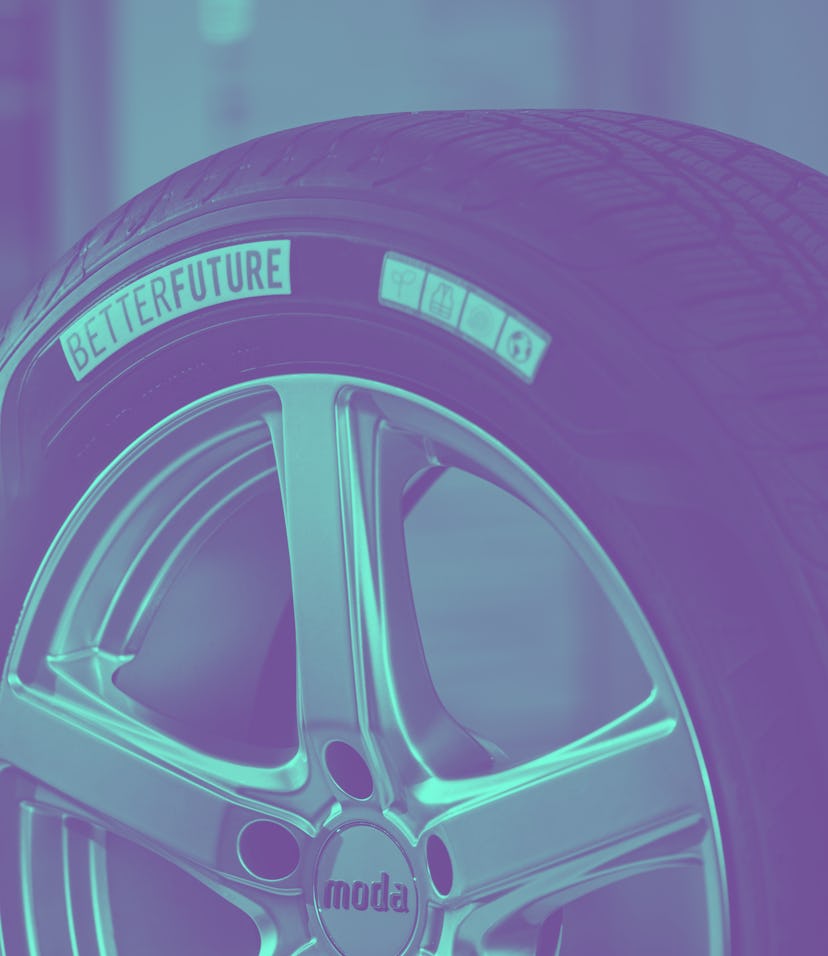Tech
Goodyear's new tires are made of 70% sustainable materials
The company's goal is to produce tires from 100 percent sustainable materials by 2030.

Goodyear has created a new tire composed of 70 percent sustainable-material content, putting it well on its planned roadmap to make 100 percent sustainable tires by 2030. The tires, which are limited to demonstration models for now, are comprised of 13 sustainable ingredients, including recycled polyester, plant-based carbon blacks, and soybean oil.
“We set an ambitious goal in 2020 to create a tire made 100 percent from sustainable materials in 10 years, and our scientists and engineers have made great progress toward that goal,” global CTO Chris Helsel said in a press release.
Goodyear’s 2030 goal is ambitious by industry standards. Every major tire producer is working hard to make more sustainable tires, but Goodyear is working overtime. Bridgestone, by comparison, is thinking it’ll accomplish 100 percent sustainable-material tires by 2050.
If we want to truly minimize our vehicles’ impact on the planet, we’ll need to go much further than just switching from gas to electricity. We’ll need to overhaul every part of the car-making process.
Airless expansion, too — Finding sustainable tire materials isn’t the only way in which Goodyear is hoping to fight climate change. The company has also been working on non-pneumatic (airless) tires that use a collection of spokes to keep the wheel firm enough to drive on. They never go flat — because there’s no air in them at all — and need to be replaced much less frequently.
Goodyear’s airless tires are still very much in prototype mode, but the company today announced it’s expanding its testing to include its Starship delivery robots. These robots are used for delivering food and packages across the U.S. and in parts of the U.K. Early testing of Starship airless tires has been promising, Goodyear says.
Not just the gas — Electric vehicles are very much on the up-and-up. Legacy automakers and newbie brands alike are pouring billions into producing consumer EVs.
This is remarkable progress, especially when you consider how very quickly the auto industry has ramped up production. And gas consumption is by far the most pressing issue when it comes to fighting climate change.
We can’t stop there, though. Production and upkeep of EVs is still energy-intensive. Tires are a huge source of pollution — and owning any sort of car means replacing them every few years. Developing more sustainable tires will be pivotal to minimizing the impact of our electric vehicles.